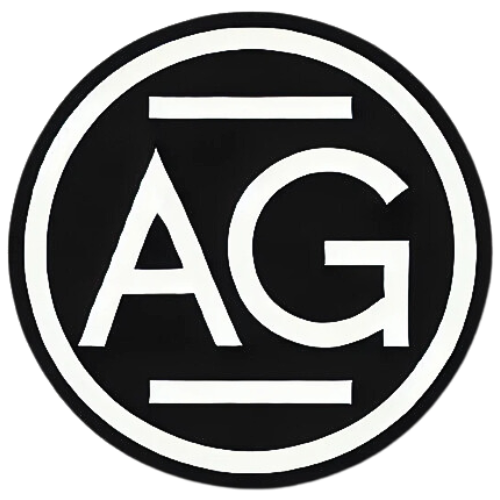Key Tips for Finding the Right Partner
Your website is more than just a digital presence—it’s a vital tool for connecting with clients, showcasing your services, and building credibility. Choosing the right web developer is essential to ensure your website not only looks great but also functions smoothly and achieves your business goals. But with so many developers out there, how do you find the one that’s best for your project?
In this article, we’ll walk through key tips to help you select a web developer who’s the right fit for your needs. From technical skills to communication style, here’s what to consider when hiring a web developer.
1. Identify Your Website Goals and Requirements
Before diving into the hiring process, it’s important to have a clear idea of what you need from your website. Are you looking for a simple, professional portfolio or a more complex site with e-commerce functionality? Knowing what you want helps narrow down potential developers and ensures they have the specific skills required.
Consider asking yourself questions like:
- What is the main purpose of my website? (e.g., selling products, showcasing services, providing information)
- What features and functionalities are must-haves? (e.g., contact forms, online booking, payment processing)
- Do I need ongoing support, or is this a one-time project?
Having a list of your goals and requirements ready will help you communicate your vision clearly to potential developers.
2. Look at Their Portfolio
A developer’s portfolio is a valuable resource for assessing their skills, style, and experience. Reviewing previous work gives you insight into whether their design aesthetic aligns with your vision and whether they have experience in your industry or with projects similar to yours.
When reviewing a portfolio, ask yourself:
- Do these websites look visually appealing and professional?
- Is there a variety of styles, or is the developer limited to a certain type of design?
- Are the sites responsive, meaning they look good on both desktop and mobile?
If a developer’s portfolio showcases work that resonates with your brand and goals, they may be a great fit for your project.
3. Check Their Technical Skills and Expertise
Web development involves a range of technical skills, and it’s essential to ensure that the developer you choose has the necessary expertise. Here are some core skills and technologies to look for, depending on your needs:
- HTML, CSS, and JavaScript: These are fundamental web development languages used to structure, style, and add interactivity to websites.
- Responsive Design: A developer should know how to create a site that works well on all devices, from desktops to smartphones.
- SEO Knowledge: Basic knowledge of SEO (Search Engine Optimization) helps improve your site’s visibility in search engines.
- CMS Experience: If you want to manage your site’s content yourself, look for developers experienced with content management systems like WordPress, Joomla, or Shopify.
- Back-End Skills: For more complex sites that require databases or user accounts, back-end skills in languages like PHP, Python, or Ruby may be needed.
Don’t hesitate to ask a developer about their technical skills and how they stay current with new tools and technologies in web development.
4. Consider Their Communication Style
Clear, open communication is crucial when working with a web developer. Look for a developer who is responsive, transparent, and willing to listen to your ideas and concerns. Good communication helps ensure that your vision is understood and that the development process goes smoothly.
Some questions to ask about communication:
- How will we communicate throughout the project? (e.g., email, phone, project management software)
- How often can I expect updates or progress reports?
- What is your process for addressing changes or feedback?
A developer who values communication can provide reassurance, address concerns promptly, and keep the project moving forward efficiently.
5. Ask About Their Development Process
Every developer has their own process for managing projects. Understanding how they approach development can help you gauge whether their style aligns with your expectations. A well-organized development process often leads to better project outcomes and smoother collaboration.
Some things to ask about the development process:
- Project Timeline: How long do they estimate the project will take from start to finish?
- Milestones and Deliverables: Do they break the project down into stages, with specific goals for each phase?
- Testing and Quality Assurance: How do they test the website for bugs and ensure that everything works properly before launch?
Knowing these details can give you a sense of how structured and reliable a developer is.
6. Consider the Cost and Your Budget
Web development costs can vary widely depending on the complexity of the project and the developer’s experience level. It’s a good idea to have a clear budget in mind and discuss it openly with potential developers. Keep in mind that the cheapest option isn’t always the best; investing in quality development often pays off in the long run.
When discussing cost, consider:
- Upfront Costs vs. Ongoing Fees: Is this a one-time cost, or will there be ongoing fees for maintenance and updates?
- Payment Structure: Do they require a deposit, or do they offer a payment plan based on project milestones?
- Additional Costs: Will there be any other costs, such as for domain registration, hosting, or premium plugins?
A clear understanding of costs helps prevent surprises down the line and ensures that the project stays within your budget.
7. Look for a Developer Who Offers Post-Launch Support
Even after a website is launched, it may require updates, bug fixes, or additional features. Some developers offer post-launch support to handle these needs, while others consider the project complete once the site goes live.
Ask potential developers about their post-launch support:
- Do they offer maintenance or support packages?
- How much do they charge for updates or additional features?
- Will they be available if you need help with troubleshooting or making changes in the future?
Will they be available if you need help with troubleshooting or making changes in the future?
8. Read Reviews and Testimonials
Client reviews and testimonials can provide valuable insights into a developer’s reliability, professionalism, and quality of work. Look for feedback on their responsiveness, ability to meet deadlines, problem-solving skills, and overall satisfaction with the final product.
Check trusted platforms such as Google Reviews, LinkedIn, or specific web development directories. If possible, ask the developer if you can speak with past clients to get a firsthand account of their experience.
Final Thoughts: Choosing the Right Developer for Your Project
Finding the right web developer can be the difference between a website that simply exists and a website that actively drives growth for your business. By considering the factors above, you’ll be well on your way to selecting a developer who understands your vision, has the right skills, and can deliver a site that meets your needs.
As a web developer based in Sydney, I’m here to help bring your ideas to life. Whether you’re building a new site or enhancing an existing one, my goal is to create a seamless, engaging online experience that represents your brand and supports your business objectives. Let’s chat about how I can support your web development needs—reach out today to start the conversation!

